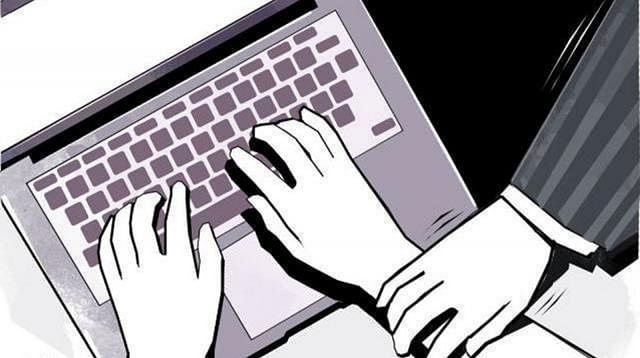'Section 32 more dangerous than 57'

Several sections of the proposed Digital Security Act have been strongly criticised as means of muzzling freedom of speech.
Section 32 of the newly drafted act will particularly stand in the way of independent and investigative journalism, said people of all walks of life, including journalists.
Two ministers on Tuesday said that journalists have nothing to worry about if their reports are factual.
Bangladesh Nationalist Party (BNP) leaders, however, said section 32 is even more dangerous than section 57 of the previous Information and Communication Technology (ICT) Act.
Rights group Ain O Salish Kendra (ASK) has also expressed concern over the draft of the new law.
The government on Monday approved the draft of the Digital Security Act-2018, abolishing the much-criticised section 57 of the Information and Communication Technology (ICT) Act after facing widespread criticism from different quarters.
Section 57 deals with defamation, hurting religious sentiment, tarnishing the image of the state, damaging communal harmony and harming the law and order situation.
But for all practical purposes, section 57 of the ICT Act has not actually been scrapped as the “crimes” defined in the section have been included in four separate sections of the Digital Security Act.
Of the four, section 32 is facing growing criticism as newsmen call this a huge obstacle top press freedom.
According to section 32, if a person enters any government, semi-government or autonomous organisation illegally and records or helps to record any confidential or semi-confidential information or document with electronic devices, this will be considered an act of digital or computer espionage and he or she will face maximum 14 years of imprisonment, or a Tk 2.5 million fine or both.
If the person commits the crime again, he or she will be sentenced to life imprisonment or a Tk 10 million fine or both.
BNP standing committee member Khandaker Mosharraf Hossain on Tuesday said section 32 of the Digital Security Act is even more dangerous than section 57 of the previous ICT Act.
He was speaking at a discussion in the national press club. Freedom of press and freedom of speech will be diminished by this new law, he added.
BNP senior joint secretary general Ruhul Kabir Rizvi, addressing a briefing at the party’s central office, said that there would be no freedom of expression or freedom of press if the law was passed.
He also said that the Digital Security Act would be marked as yet another 'black law’ in the country’s history.
Commerce minister Tofail Ahmed, however, told newsmen in the secretariat, the law is accurate and transparent.
The law would not be a barrier for freedom of newspersons, he added. According to the ruling Awami League leader, formulations of laws cannot stop journalists.
Law minister Anisul Huq, while talking to newsmen in his office, said that there was no relation between journalism and espionage. Such fear was unnecessary, he added, saying that the misuse of section 57 of the ICT Act would be stopped by the Digital Security Act.
Issuing a press statement, secretary general of Bangladesher Biplobi Workers Party Saiful Haque said that the proposed Digital Security Act goes against fundamental human rights as declared in the constitution.
According to another press statement by the Ain O Salish Kendra, section 32 would shrink spaces for journalists, writers and professionals who are involved with collecting information.
According to the ASK, this law would create a propensity of self-censorship among citizens.
The rights group urged the government to be more responsible in protecting the people’s freedom of expression.